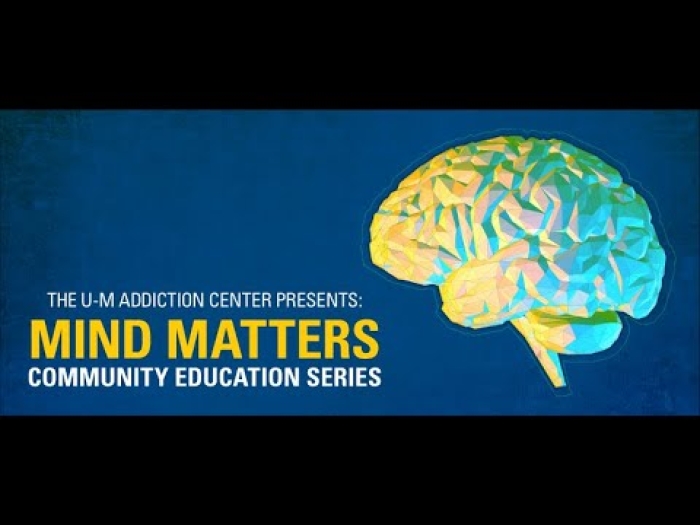Before ringing in the new decade, take a quick look back at the platform's most read stories of the year.
5:00 AM
Author |

Oh 2019, how much we have learned over these last twelve months! As the new year quickly approaches, we're reflecting back on what our Michigan Medicine experts have taught us, and the world, through their work.
To help kick off 2020, we've round up the most read stories of the Michigan Health Lab blog, counting down to the biggest read of 2019. Enjoy the snippets, and click the titles to learn more about each.
20. Half of U.S. Children with Mental Health Disorders Are Not Treated
This study found one in seven kids and young adults have at least one treatable mental health disorder.
19. App-Driven Care for Parents of Children Undergoing Surgery
U-M researchers found that a smartphone app reduced clinic calls and simplified care instructions for parents after their child underwent tonsil surgery.
18. Opioid-Related Suicides and Overdose Deaths Have More Than Doubled Since 2000
Suicides and drug overdoses kill American adults at twice the rate today as they did two decades ago, researchers found in this analysis.
17. Dramatic ACA Effect Seen in Insurance for Adults with Diabetes
This U-M study found requirements deep in the Affordable Care Act had a sizable effect on the ability of people with diabetes to get health insurance.
16. 8 Ways to Make Your Medical School Application Shine
Two U-M admissions officers provided key application tips for those looking to pursue an M.D.
15. New Endoscopic Procedures Offer Alternative to Bariatric Surgery
U-M specialists offer innovative weight-loss treatments using noninvasive techniques as part of this new multidisciplinary program.
14. Depression in First-Year Doctors Depends on Where They Train
This paper described the significant impact a residency program can have on an intern's mental health during their first year.
13. Getting Leftover Surgery Opioids Out of Harm's Way? It's in the Bag
A randomized trial showed that when patients were provided special disposal bags, odds doubled that they would safely discard their leftover medication.
12. Two Ways to Reduce Blood Thinner Risks That Lead to GI Bleeding
This paper outlined approaches for health care providers on how to help patients better balance the risks and benefits of anticoagulants.
11. What Drives Patients to Use Medical Marijuana: Mostly Chronic Pain
Investigators took a deeper dive into the state's medical marijuana registry data.
10. Expanding Medicaid Means Health Problems Get Found and Health Improves, Study Finds
Nearly 1 in 3 low-income people who enrolled in Michigan's expanded Medicaid program discovered they had a chronic illness that had never been diagnosed, according to these findings.
9. Gene Therapy Treatment Targets Rare Mutation Tied to Blindness
The Kellogg Eye Center began treating patients with a new gene therapy for children and adults with inherited forms of vision loss.
8. Why Women Get Autoimmune Diseases Far More Often Than Men
A study conducted in mice discovered both a root cause for known differences between the sexes and a possible target for new treatments.
7. Study: Therapy Completely Clears HPV in One-Third of Cervical Precancers
Clinical trial results of an immune-based therapy to treat pre-cancers in the cervix found the vaccine completely eliminated HPV infections in a third of women enrolled.
6. Benefits for Mind, Body and Work Ability Seen in Medicaid Expansion
According to this study, expanding Medicaid to more low-income adults helped many feel healthier and do a better job at work or in searching for a job.
5. Systemic Scleroderma Treatments: Where Are We Now?
For patients participating in scleroderma clinical trials, this article described a novel outcome measure from experts in the field.
4. Prescribing Opioids for a Sprained Ankle?
Investigators reported an increase in patients being prescribed opioids for ankle sprains and urged awareness of treatment guidelines.
3. A New Option to Rescue Knee Cartilage
A new clinical trial is now currently evaluating a next-generation approach to replacing damaged knee cartilage.
2. New Doctors' DNA Ages 6 Times Faster Than Normal in First Year
Researchers published the first longitudinal study to date on results of people who have been exposed to prolonged stress.
1. Many Americans Are Worried About Taking PPIs and Have Tried Stopping Them Without Doctor Approval
Published in The American Journal of Gastroenterology, experts took a national look at patients' perceptions of proton pump inhibitors and how they were personally changing their use of the drugs.

Explore a variety of healthcare news & stories by visiting the Health Lab home page for more articles.

Department of Communication at Michigan Medicine
Want top health & research news weekly? Sign up for Health Lab’s newsletters today!





